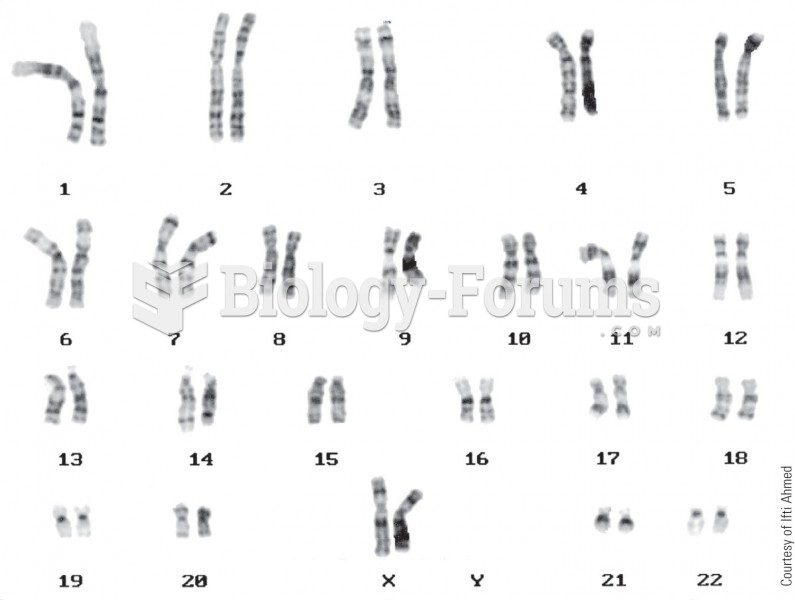|
|
|
People who have myopia, or nearsightedness, are not able to see objects at a distance but only up close. It occurs when the cornea is either curved too steeply, the eye is too long, or both. This condition is progressive and worsens with time. More than 100 million people in the United States are nearsighted, but only 20% of those are born with the condition. Diet, eye exercise, drug therapy, and corrective lenses can all help manage nearsightedness.
Asthma occurs in one in 11 children and in one in 12 adults. African Americans and Latinos have a higher risk for developing asthma than other groups.
Bacteria have been found alive in a lake buried one half mile under ice in Antarctica.
Although the Roman numeral for the number 4 has always been taught to have been "IV," according to historians, the ancient Romans probably used "IIII" most of the time. This is partially backed up by the fact that early grandfather clocks displayed IIII for the number 4 instead of IV. Early clockmakers apparently thought that the IIII balanced out the VIII (used for the number 8) on the clock face and that it just looked better.
Giardia is one of the most common intestinal parasites worldwide, and infects up to 20% of the world population, mostly in poorer countries with inadequate sanitation. Infections are most common in children, though chronic Giardia is more common in adults.
 The visual field as seen by a person with (a) glaucoma, (b) macular degeneration, and (c) cataracts.
The visual field as seen by a person with (a) glaucoma, (b) macular degeneration, and (c) cataracts.
 Brushing off to finish-back. In a quiet voice ask the person to sit up with legs off the side of the ...
Brushing off to finish-back. In a quiet voice ask the person to sit up with legs off the side of the ...





